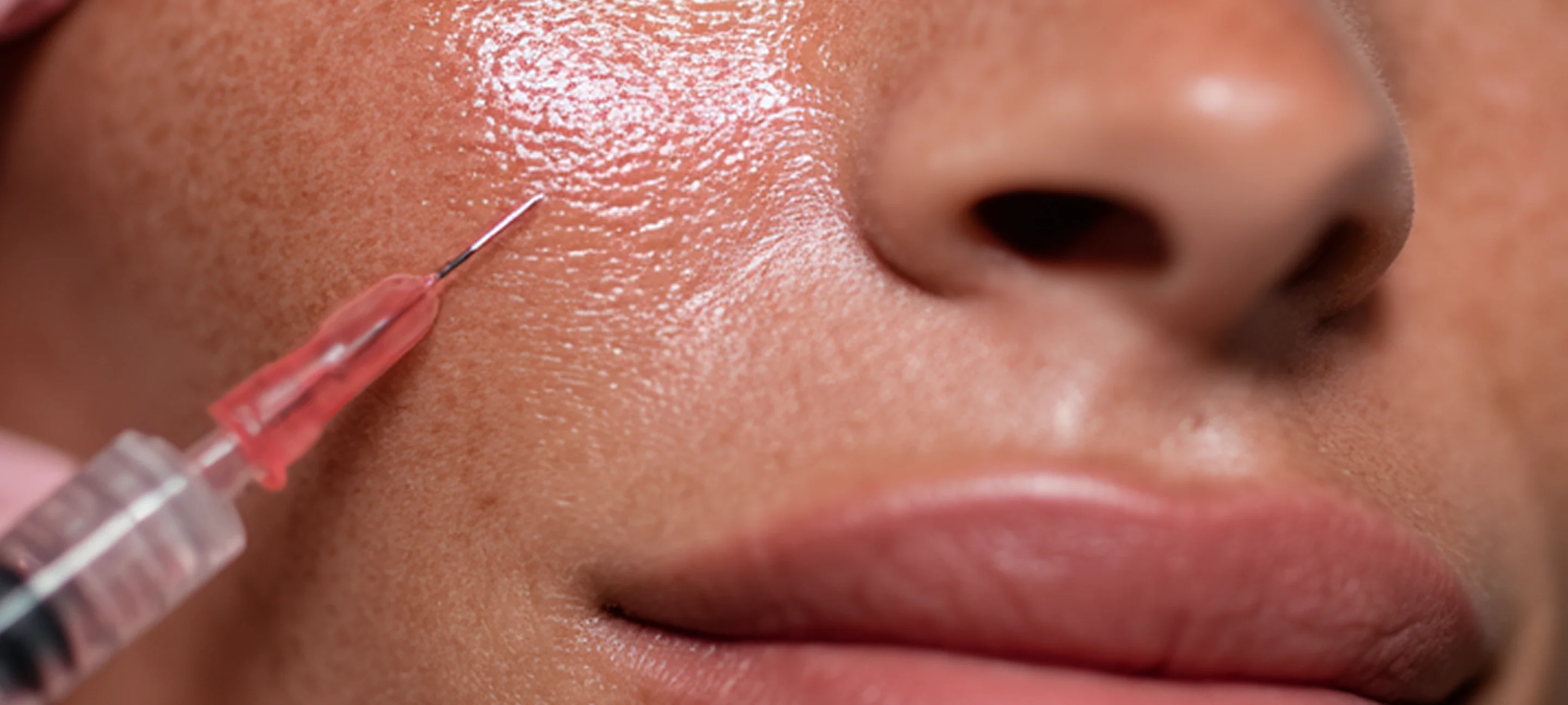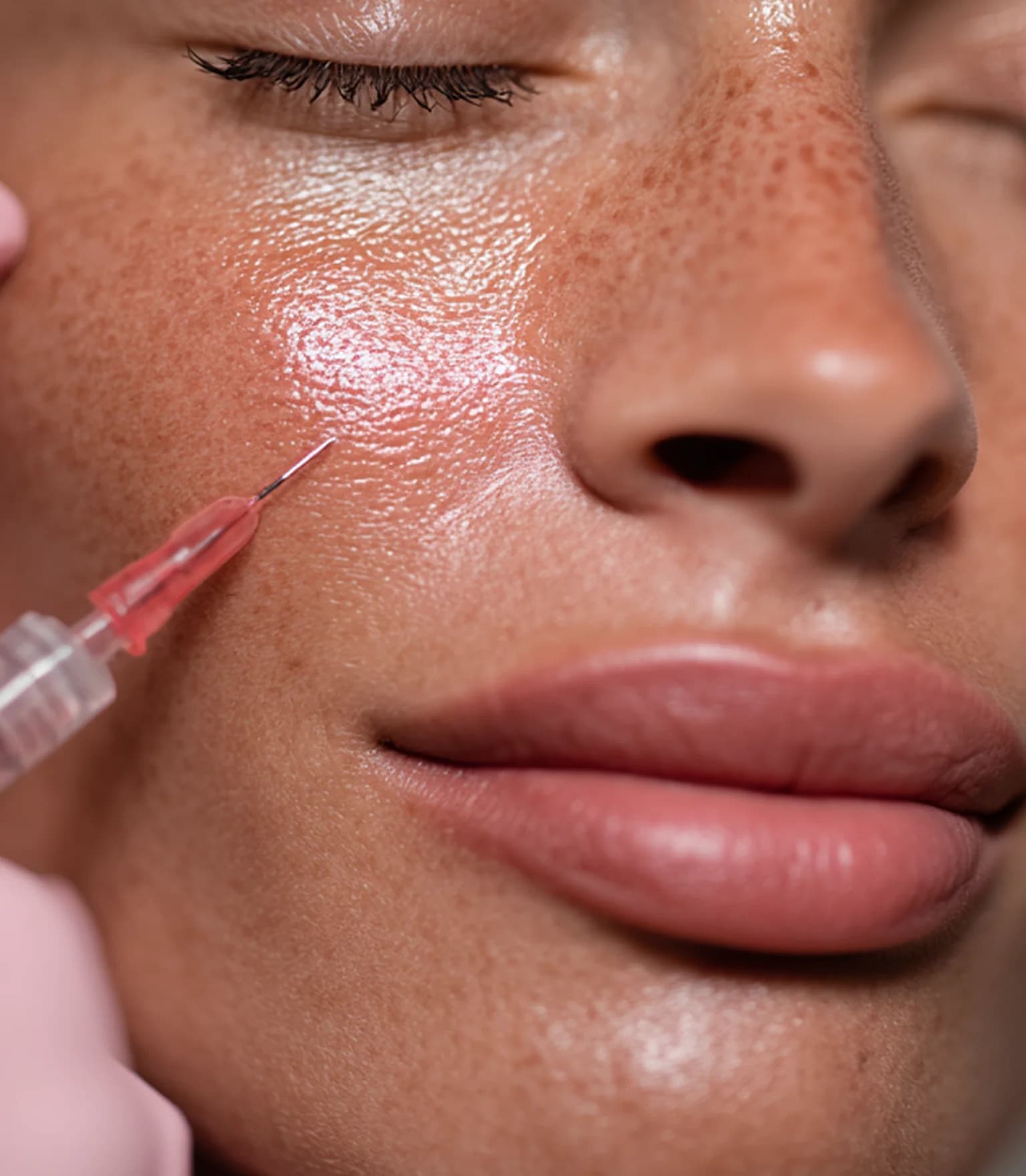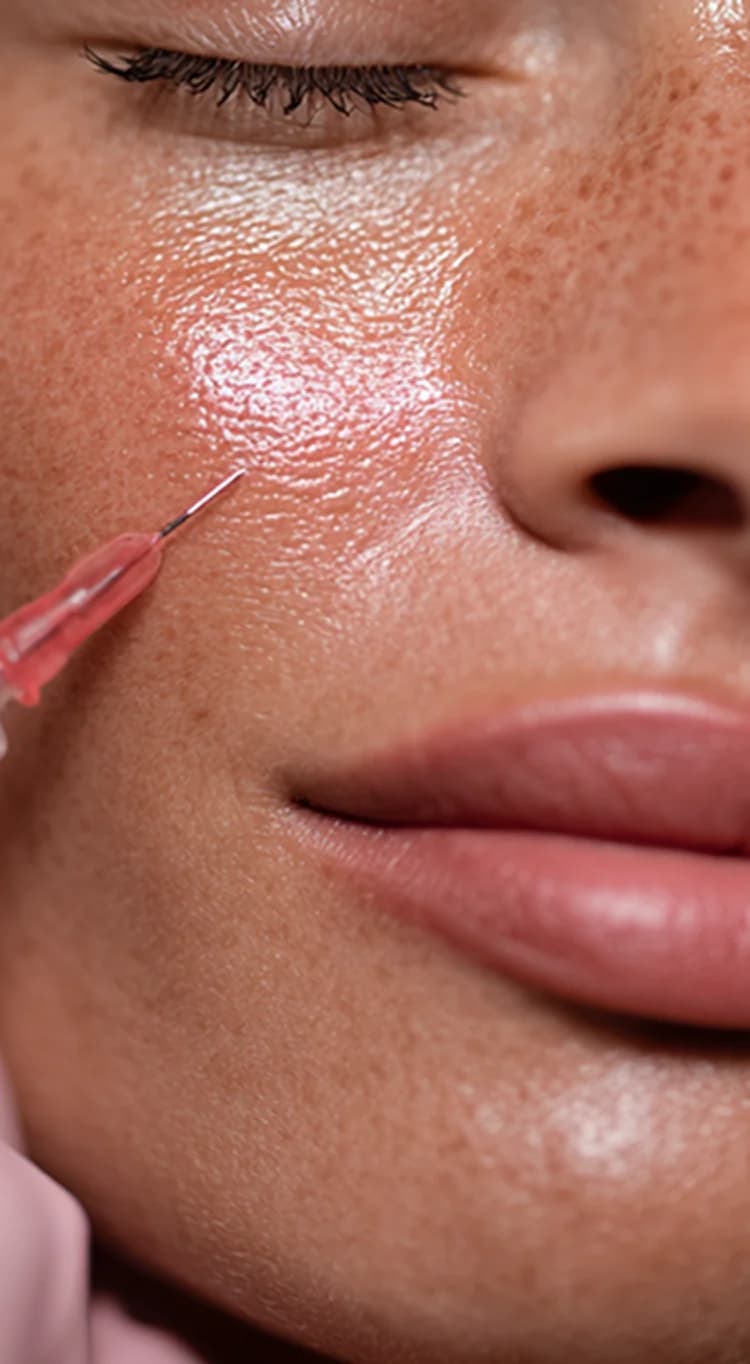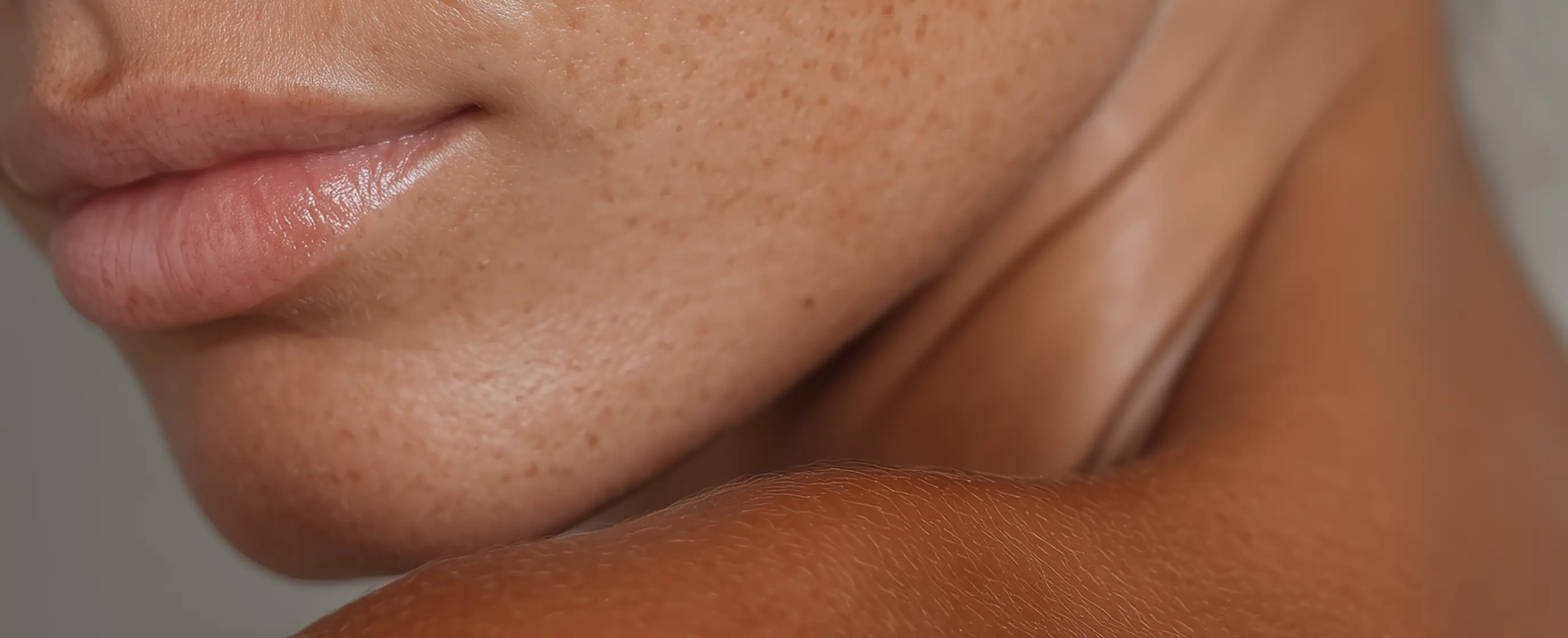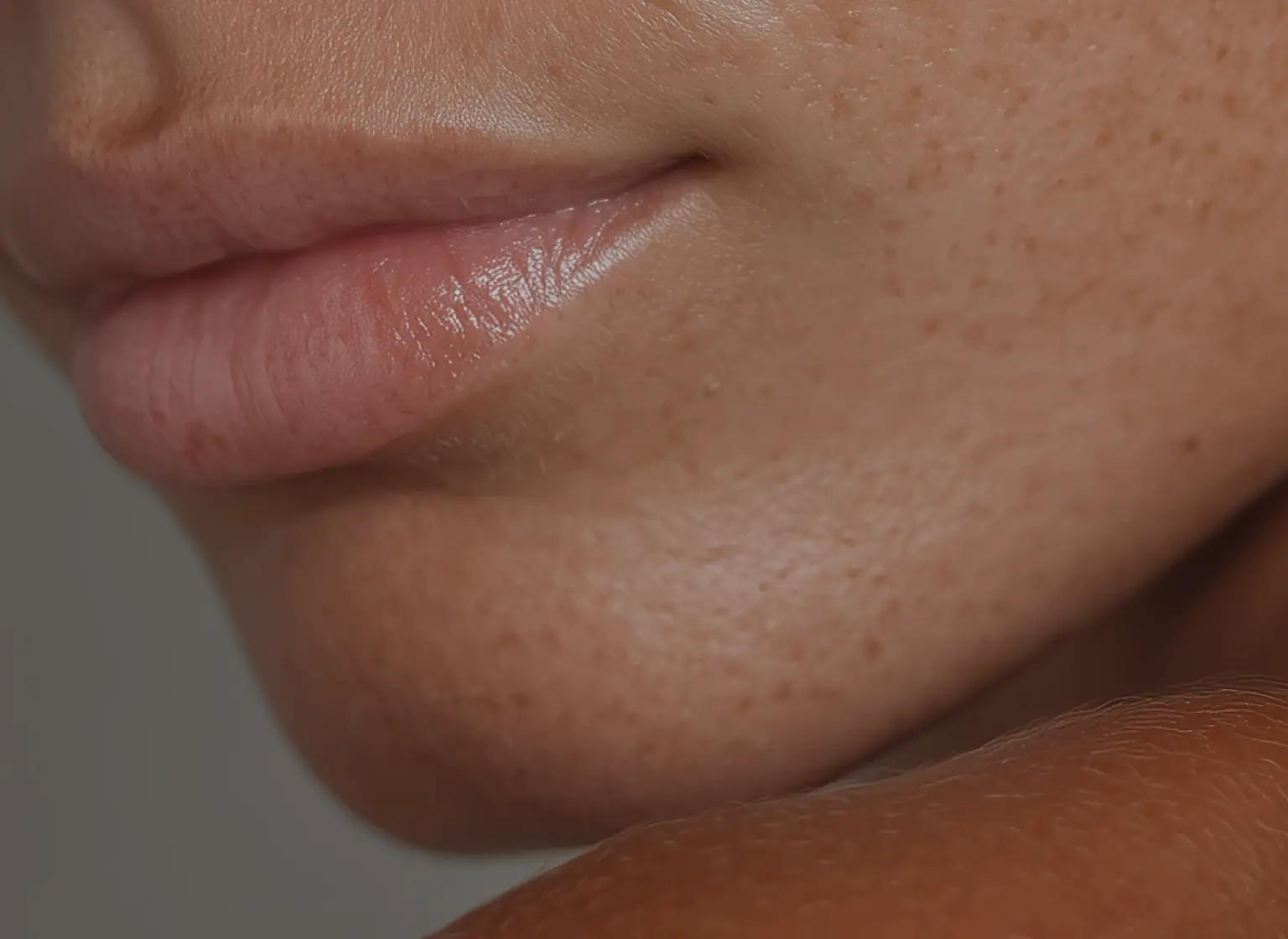WHAT ARE POLYNUCLEOTIDES?
Polynucleotides are injectable bio-stimulators derived from DNA fragments that promote tissue repair, reduce inflammation, and improve skin quality at a cellular level. They hydrate deeply, stimulate fibroblasts (collagen-producing cells), and support the skin's natural regeneration process. The result is healthier, more resilient skin with improved tone and texture.
THEY CAN BE USED TO:
- Improve overall skin quality and hydration
- Reduce fine lines and wrinkles
- Treat under-eye hollows and dark circles
- Improve acne scarring and uneven texture
- Reduce inflammation and redness
- Rejuvenate ageing or damaged skin
Polynucleotides treatments available on marbl
What to Expect
A qualified practitioner injects polynucleotides into targeted areas using a fine needle or cannula. The DNA fragments penetrate deeply and activate cellular repair mechanisms, promoting collagen synthesis, improving hydration, and reducing oxidative stress. Results develop gradually as the skin regenerates from within.
Treatment time
30–45 minutesPain level
mild to moderate — numbing cream is typically appliedDowntime
mild; swelling redness or bruising for 1–3 daysWhen results appear
4–6 weeksFull results
8–12 weeksLongevity
6–12 monthsLook and feel
healthier more radiant skin with improved texture and natural volumeIS IT RIGHT FOR ME?
THIS TREATMENT MAY BE SUITABLE IF:
- You want to improve overall skin quality and resilience
- You have tired dull or dehydrated skin
- You're looking for a bio-regenerative approach to anti-ageing
- You want to address under-eye concerns or scarring
Pre-Care & Aftercare
BEFORE YOUR APPOINTMENT
- Avoid alcohol and blood-thinning medications for 24–48 hours
- Pause retinoids and exfoliating products for 3 days
- Arrive with clean skin free of makeup
- Stay hydrated
AFTER YOUR APPOINTMENT
- Mild swelling or redness is normal and fades within 1–3 days
- Avoid touching or rubbing treated areas for 24 hours
- Skip makeup and active skincare for 24 hours
- Avoid sun exposure saunas or vigorous exercise for 24–48 hours
- A course of 3–4 treatments spaced 2–4 weeks apart is typically recommended
Learn More
top clinics to get Polynucleotides in your area
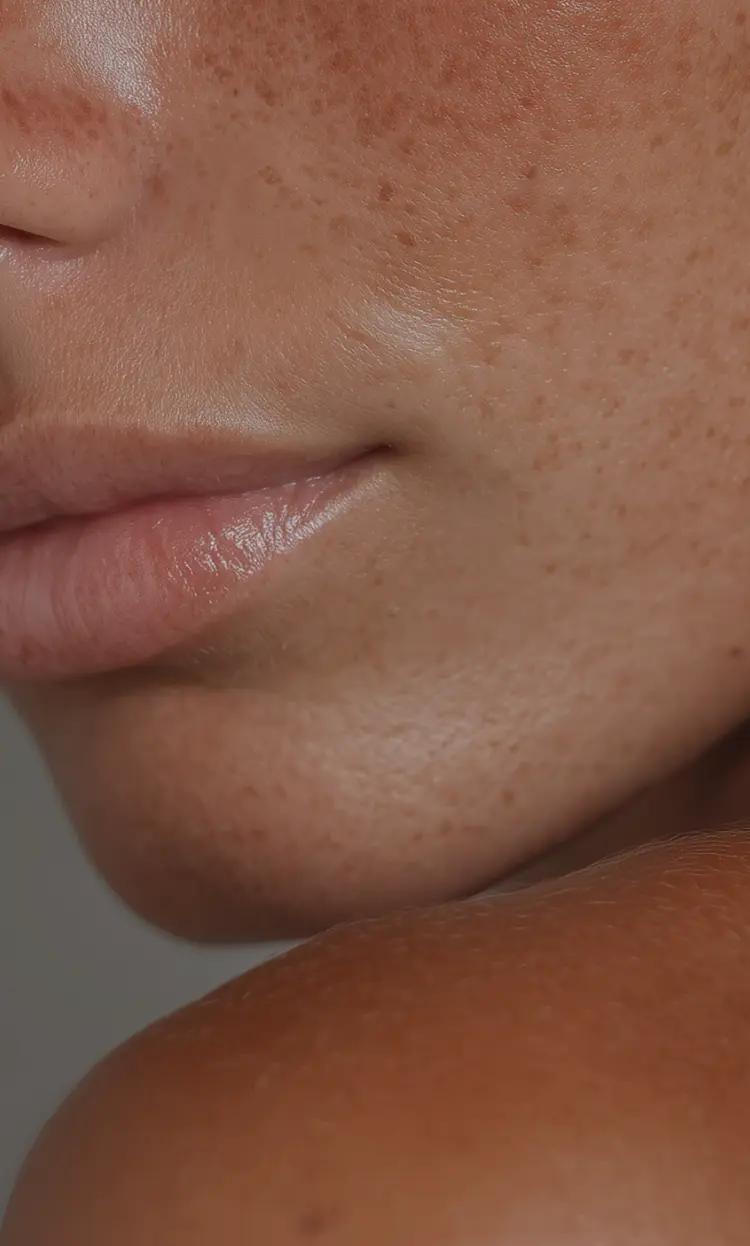
Not sure if Polynucleotides are right for you?
Answer a few quick questions to discover treatments tailored to your goals.
FAQs
Polynucleotides are injectable treatments made from purified chains of DNA molecules, typically derived from salmon or trout sperm. These biostimulators work at a cellular level to promote skin regeneration, repair and rejuvenation. When injected into the skin, polynucleotides help to stimulate fibroblast activity, which in turn boosts the production of collagen and elastin, improves hydration and supports natural healing processes. The treatment is designed to improve overall skin quality, texture and tone rather than add volume or change facial structure. Polynucleotides are particularly popular for addressing concerns like crepey skin, fine lines, dullness, under-eye hollows, acne scarring and general signs of ageing.
A polynucleotide treatment involves a series of small injections delivered into the skin using a fine needle or cannula. During your appointment, the practitioner will cleanse the treatment area and may apply numbing cream for comfort. The polynucleotide solution is then injected at multiple points across the target area, such as the face, under-eyes, neck or hands. You may experience mild stinging or pressure during the procedure, and some small bumps or redness immediately afterwards, which typically settle within a few hours to a day. The treatment works gradually by stimulating your skin's natural regeneration processes rather than providing instant volume, so results develop over several weeks as collagen production increases and skin quality improves. Most practitioners recommend a course of treatments spaced a few weeks apart for optimal results.
Polynucleotides have shown promising results in clinical studies and real-world use, particularly for improving skin quality, hydration, elasticity and texture. They work by stimulating the body's natural repair mechanisms rather than simply filling or plumping the skin, which means results tend to look natural and develop gradually. Many people report improvements in skin tone, reduced appearance of fine lines, better hydration and a more refreshed overall appearance. However, effectiveness varies depending on individual factors such as age, skin condition, lifestyle and the severity of concerns being treated. Polynucleotides work best for people looking to improve skin quality and slow down visible signs of ageing, but they are not suitable for dramatic lifting, significant volume loss or deep wrinkles, where other treatments may be more appropriate. A consultation with an experienced practitioner can help determine if polynucleotides are right for your specific concerns.
Polynucleotides work gradually, as they stimulate your skin's natural regeneration processes rather than providing immediate visible changes. Most people begin to notice subtle improvements in skin hydration, texture and radiance within 2 to 4 weeks after their first treatment. More significant results, such as improved elasticity, reduced fine lines and overall skin quality, typically become apparent after completing a full course of treatments, usually over 6 to 8 weeks. The timeline can vary depending on your age, skin condition, the area being treated and how your body responds to the treatment. Because results develop progressively, patience is important, and it can take up to 3 months to see the full benefits. Your practitioner will be able to give you a more personalised timeline based on your individual treatment plan.
The results from polynucleotide treatments typically last between 6 to 12 months, though this varies from person to person. Because polynucleotides work by stimulating your body's natural collagen and elastin production rather than simply adding temporary volume, the improvements can have a longer-lasting effect compared to some other treatments. Factors that influence how long results last include your age, skin quality, lifestyle, sun exposure, skincare routine and whether you have maintenance treatments. Most practitioners recommend an initial course of 2 to 3 sessions spaced a few weeks apart, followed by maintenance treatments once or twice a year to sustain the improvements. The regenerative effects can continue to develop even after the treatment course is complete, as your skin's natural repair processes remain active.
Polynucleotides are generally considered safe when administered by a qualified and experienced practitioner in a clinical setting. The treatment has been used in aesthetic medicine for several years and has a good safety profile. Because polynucleotides are biocompatible and similar to naturally occurring molecules in the human body, the risk of allergic reactions is low. However, as with any injectable treatment, there are potential side effects such as temporary redness, swelling, bruising, tenderness or small bumps at injection sites, which typically resolve within a few days. Rare complications can include infection, prolonged swelling or uneven results. It is essential to choose a reputable, trained practitioner who follows proper hygiene and injection techniques. Always disclose your full medical history, any allergies, medications or existing health conditions during your consultation to ensure the treatment is appropriate for you.
Before polynucleotide treatment, people often have concerns such as dull or tired-looking skin, fine lines, crepey texture, loss of elasticity, uneven skin tone, under-eye hollows or early signs of ageing. After completing a course of polynucleotide treatments, the skin typically appears more hydrated, smoother, firmer and more radiant, with a noticeable improvement in overall skin quality and texture. Fine lines may appear softer, and the skin often has a healthier, more youthful glow. Because polynucleotides work gradually by stimulating natural regeneration, the changes tend to look subtle and natural rather than dramatically altered. Results continue to develop over several weeks and months as collagen production increases. The extent of improvement varies based on individual factors such as age, starting skin condition and lifestyle. Your practitioner can provide realistic before and after examples from their own work to help set appropriate expectations for your specific concerns and goals.
